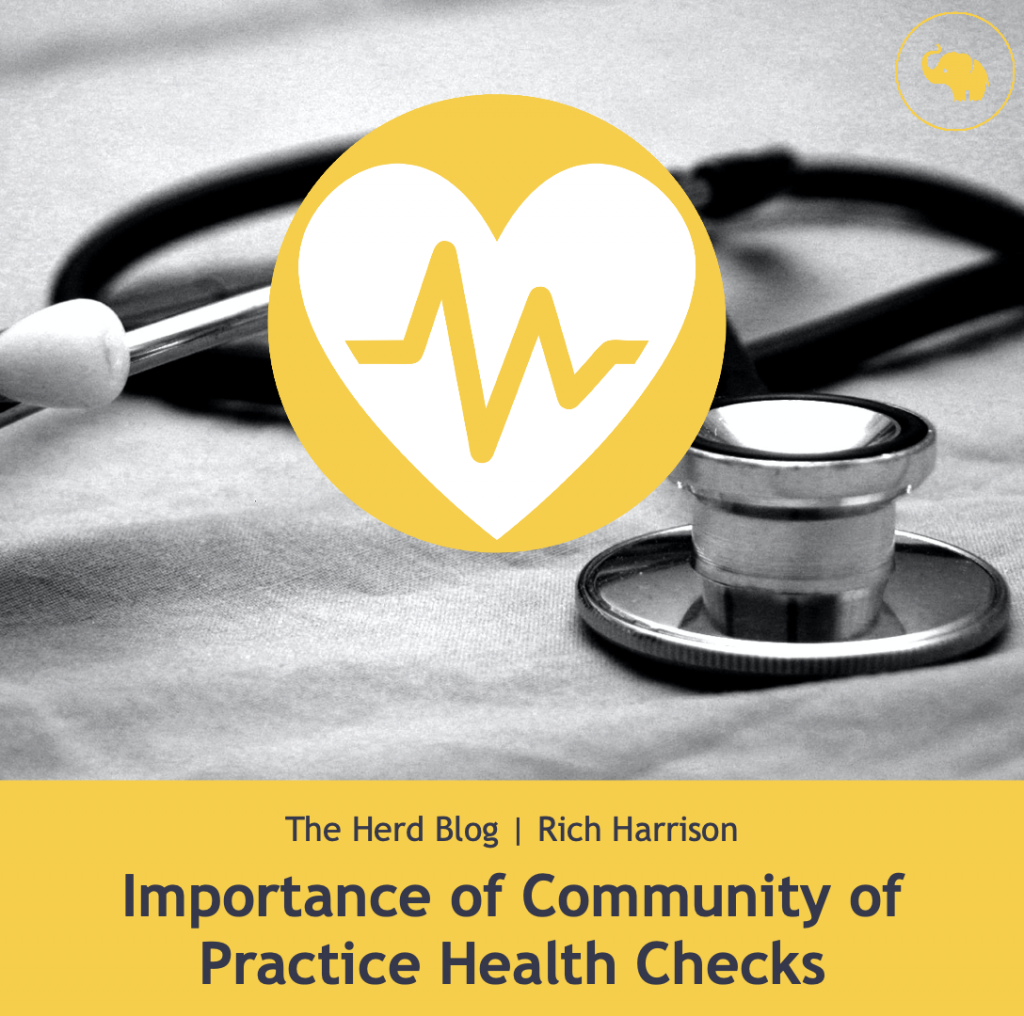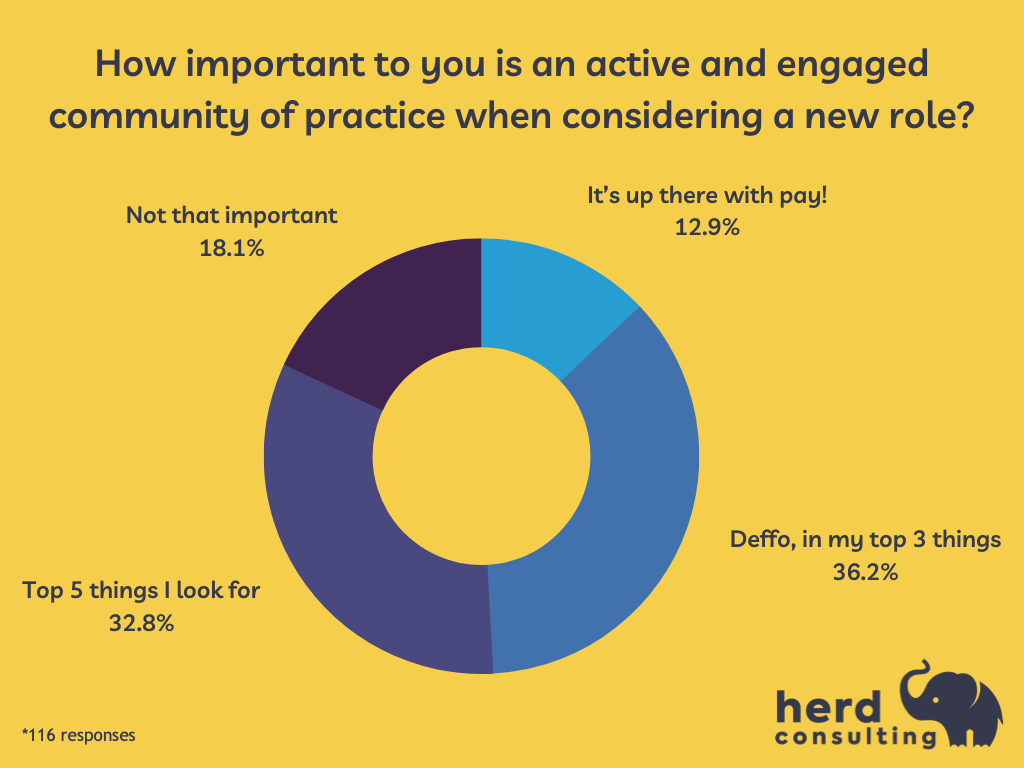
👉 This article assumes some reader familiarity with Communities of Practice
Why Communities of Practice are important
We all know what they are, but let’s quickly reacquaint ourselves…
Communities of Practice (CoPs) are self-organised, voluntary groups of people who have a common interest and who regularly come together to support each other in some way – by exchanging ideas, sharing knowledge, working on a problem, or improving their skills within a specific domain.
It’s easy to see from the above that CoPs create healthy working environments and build stronger relationships between colleagues. They get people with shared interests collaborating, sharing ideas and knowledge, and co-operating more. They also help support us in more quickly solving problems and retaining our talent.
Years ago at work, before this was all neatly defined, I think I used to muddle through and never really understood what I was missing. I was, sort of, happy but there were things that bothered me – niggles and doubts and something that was just ‘… missing’ and that I couldn’t quite put my finger on.
I understand now that in many places where I’ve previously worked, we didn’t have a healthy culture/community or were missing CoPs entirely!

Why CoPs need nurturing
The above graphic (based on our research last year) shows how important CoPs are to many of us. Sure, that monthly injection of cash gets us through the door but its things like a positively functioning CoP that keep us there – it is the bonds with our colleagues that make the work worth doing and a CoP supports this and helps us to be rockstar BAs!
That’s why its so important to keep them healthy, relevant and vital!
I’m sure I’m preaching to the converted here in stating that CoPs can be challenging to set up in an organisation but are even harder to nurture and keep going. The culture of an organisation impacts on its people and this can really impact on the success of CoPs. Then there are challenges like (shared) ownership of the CoP, people leaving that were (secretly) the real champions behind the CoPs success, and so on. The list goes on!
So, we need to regularly, and honestly (!), assess the health of your Community of Practice otherwise it could easily wither away or even die…
The doctor will see you now!
Symptoms are feelings or sensations a person has; Signs are observable characteristics.
We often use Symptoms/Signs interchangeably but it can be useful when health-checking your CoP to differentiate them as I have, above. If you can catch and address symptoms early enough then you can stop them from becoming signs and, worse, becoming, bad habits and behaviours.
A good Health Check can stop all this bad stuff from happening; or at least address it early on…
When carrying out such an assessment, it’s important to consider the following:
- Health checks are performed with members of the CoP being assessed
- It goes without saying, but I’ll say it anyway (!), that this has to be a safe-space where colleagues can talk about both signs and symptoms
- We need to assess and understand the current state of the CoP; the as-is and what its objective(s) is
- We need to identify the good (what is working well) and the bad (what’s not working well)
- We need to agree on where we’d like to be
Once we’re done here, we can move on to…
The diagnosis and the cure
It’s really helpful to assess the CoP against its objectives, what it’s doing well and what isn’t so good but that’s not the end of it. To get real benefits, and to continue the medical analogy, we may need to prescribe a course of antibiotics – we can’t have our rockstar BAs flagging whilst on their world tour, can we!
Working together, the members of the CoP can put together an actionable plan to maintain, fix and improve things. These actions should address both signs and symptoms but can also be used to address other elements too – eg, things we’d like to improve on that are already good.
It’s vital that colleagues within the CoP take ownership of these things – either individually or collectively.
Wrapping this all up…
This only scratches the surface of all things Health Check related but I hope it gives you at least some ideas and gets across why carrying out such assessments are so important and necessary and why they need to be done regularly.
If you’d like to chat and riff off this more, then please feel free to get in touch at: richard.harrison@herd.consulting

Authored by:
Richard Harrison, Principal Consultant
Fave rock album: OK Computer by Radiohead
For all the latest updates